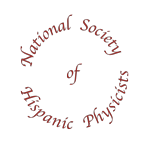
New Mexico State University
Assistant Professor tenure-track faculty position
The Department of Astronomy in the College of Arts and Sciences at New Mexico State University (NMSU) invites applications for an assistant professor tenure-track faculty position. We seek qualified candidates in observational and/or computational stellar astrophysics, stellar populations, and the structure, dynamics, and formation history of the Milky Way and Local Volume galaxies. Individuals who demonstrate the potential to leverage NMSU’s facilities and science output at Apache Point Observatory will be strongly considered. Applicants with experience and interest in astronomical instrumentation are also invited to apply, as there is a possibility of an interdisciplinary appointment in the photonics group within the College of Engineering. This position will have a start date of August 2025.
Minimum qualifications are a Ph.D. in physics or astronomy, and evidence of professional achievement such as research publications, grants, or similar, commensurate with experience. Desired Qualifications include (1) potential for establishing sustained external funding in a research area mentioned above, (2) commitment to teach and mentor students at both the undergraduate and graduate levels using evidence-based pedagogical methods, (3) experience in leading and participating in collaborative research areas, and (4) commitment to fostering a diverse, equitable, and inclusive working, learning, and academic environment.
The NMSU Astronomy Department currently comprises ten faculty, several research faculty and postdocs, and about 30 graduate students, who are involved in a wide range of astronomical research. Additional Department information, including details about our membership in the Astrophysical Research Consortium and its Apache Point Observatory 3.5-meter telescope, the SONG project 1-m telescope, and the SDSS 2.5-m telescope can be found at http://astro.nmsu.edu. NMSU is a Hispanic Serving Institution located in Las Cruces, the second largest city in New Mexico (population 111,000) that serves a diverse undergraduate and graduate population of 15,000 students.
A complete application includes the following components: (1) a 1-page cover letter, (2) a research statement (up to 3 pages) indicating research backgrounds, skills, and future plans, (3) a description (up to 3 pages) of teaching experience and teaching philosophy, (4) a 1-page statement describing the relative responsibilities of faculty, undergraduates, graduate students, and full-time research staff in promoting a healthy, collaborative, and productive academic culture both within and outside of the Department, (5) graduate transcripts (unofficial transcripts are acceptable at this stage) , (6) a curriculum vitae, and (7) names and contact information for three individuals who may be asked to provide letters of reference.
All applications must be submitted through the following link:
https://careers.nmsu.edu/jobs/assistant-professor-las-cruces-new-mexico-united-states-46f8dd70-5c11-4b39-b52f-e8608458df8d .
The AAS job register also has our advertisement: https://aas.org/jobregister/ad/184d4533 .
Application review will begin by October 15, 2024, and will continue until the position is filled.
Questions about the application process or the position should be addressed to:
Kristian Finlator (finlator@nmsu.edu), chair of the search committee.
The NMSU Astronomy Department is committed to creating an environment that affirms and supports diversity across a variety of axes, including ethnicity, race, class, ability, gender identity and expression. We particularly welcome applicants who can contribute to such an environment through their scholarship, teaching, mentoring, and professional service. NMSU is an equal opportunity and affirmative action employer committed to assembling a diverse, broadly trained faculty and staff. Women, minorities, people with disabilities, and veterans are strongly encouraged to apply. Offer of employment contingent upon verification of an individual’s eligibility for employment in the United States.
